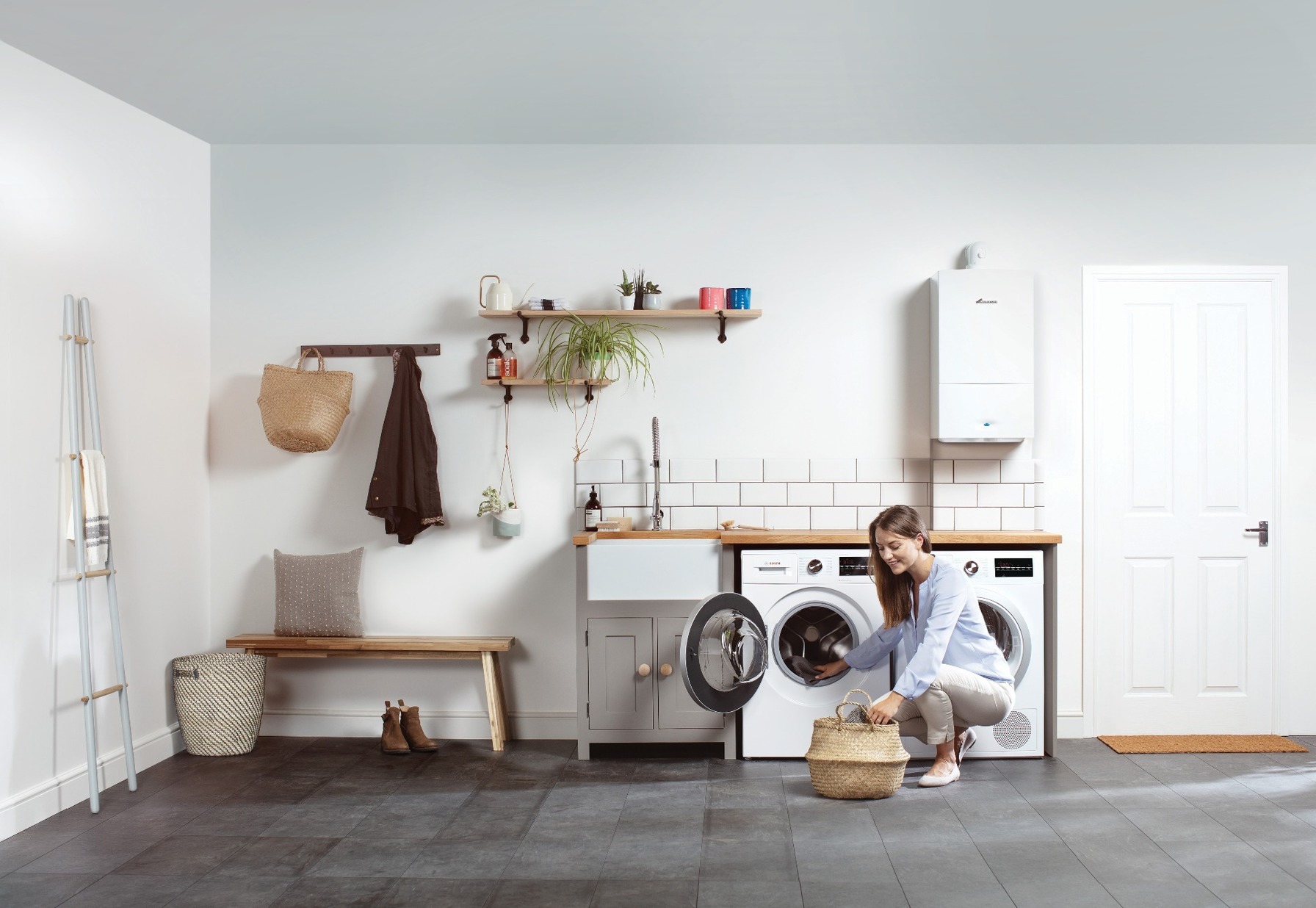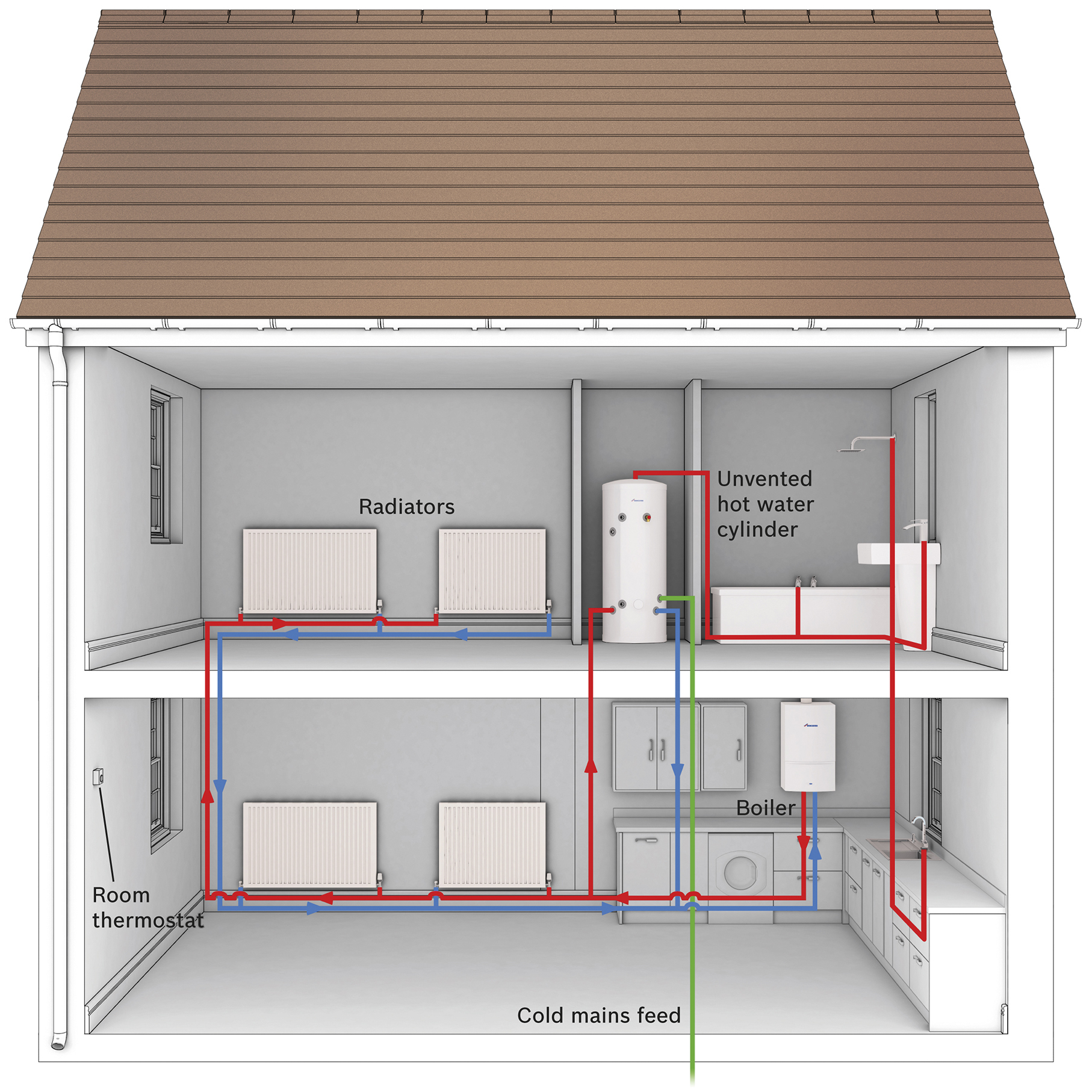In this blog post Cosy Abodes explores the merits of combi, system and conventional boilers in relation to different properties and needs for hot water and heating.
Every property is different and every homeowner is different but they all need a heating and hot water system to satisfy their demands.
The number of bedrooms and bathrooms your property houses, the size of household living in your home, the amount of useful existing heating infrastructure and the water pressure in place can all help determine which type of boiler system is best for your home.
There are essentially three types of boiler to choose from. They are:
- the combi boiler
- the system boiler
- the conventional boiler


The Combi Boiler
Short for ‘combination boiler’, combi boilers take up little space, are cheaper and easier to install and provide heating and hot water directly from the boiler unit. Combis are the smallest type of boiler and can be installed in almost any room in your home.
Combi boilers heat water directly from the mains as and when it is needed, meaning there is no need for a hot water storage cylinder, or a cold water tank in the roof space. They are energy efficient and save money by heating water on demand rather than repeatedly heating a large reserve of water. Hot water is delivered at mains pressure rather than being fed to taps by gravity.
Although combi boilers are typically ideal for small families and properties with fewer water outlets, they are available in 3 sizes.
These are:
• 24-27kw – suitable for flats and small homes with one bathroom and less than 10 radiators.
• 28-34kw – suitable for up to four bedroom properties with two bathrooms and less than 15 radiators.
• 35-42kw – suitable for large properties and hotels with multiple bathrooms and more than 15 radiators.
The System Boiler
Like combi boilers, system boilers have heating and hot water components built into the boiler. System boilers also have a built in, pressurised unvented cylinder attached to them for storing hot water, so they can feed several hot water outlets at once under high pressure.
Unlike a conventional boiler, a system boiler does not need a cold water tank in your roof space. With most components built in to its system, these boilers are quick and less expensive to install than conventional boilers while being able to handle higher demands for hot water than combis. They are suitable for larger families and medium sized properties with several hot water outlets. However, due to the limited capacity of their hot water cylinder they can occasionally run out of hot water when overused.


The Conventional Boiler
Also known as a standard boiler, regular boiler or open vent boiler, the conventional boiler works on the principle of storing reserves of water in expansion vessels such as hot water cylinders and a cold water tank. Conventional boilers allow hot water to be supplied instantaneously and simultaneously throughout large buildings with multiple bathrooms and sinks.
Hot water is dispensed from taps at a good rate of flow but not under mains pressure, as is so with system and combi boilers. However, showers with incorporated electric pumps are capable of processing hot water from a conventional boiler at greater pressure than mains supplied water.
Conventional boilers can be the most cost effective for large buildings but require the most complex and expensive installations of all boiler types. They take up significant space, require extensive pipework and can suffer slow water flow if the cold water tank is not located high enough in a building. Again, due to the limited capacity of their hot water cylinder they can occasionally run out of hot water when overused.


